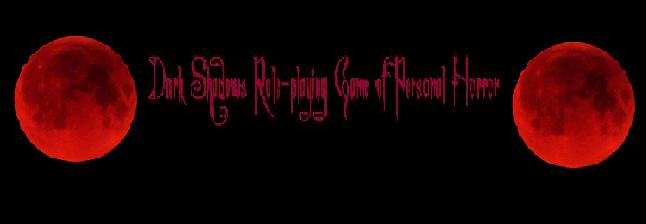
Totem
| Cunning | Respect | War | Wisdom |
The three members of the Triat were balanced with one another in the beginning. Creation began with the Wyld. The Wyld is chaos and the infinite realm of possibility, constantly swirling with change, shifting forms endlessly. From the Wyld's heedless creation came growth. Gaia sprang from the Wyld.
The Weaver, the embodiment of order, selected portions of creation from the Wyld and gave them structure; kept them from dissolving back into chaos at the moment of their birth. In doing so, the Weaver began to create the fabric of the universe - the Pattern Web.
The Wyrm was once the restorer of balance. Residing between the Pattern Web and the chaos of the Wyld, it ensuring that neither the order of the Weaver nor the chaos of the Wyld prevailed throughout reality, removing all that was not harmonious.
According to Garou myth, this was the true cosmological cycle of chaos, creation, and destruction. It lasted an eternity, but was ultimately shattered when the Weaver gained consciousness. The Garou disagree on exactly how this happened.
Regardless, the Weaver subsequently tried to spin the entire Wyld into full, patterned existence. The futility of such an impossible task drove the Weaver insane. In its desperation, the Weaver ensnared the Wyrm within the Pattern Web in its pursuit of the Wyld, in turn, driving the Wyrm insane as well.
Now the balance of pattern and chaos has been replaced by stagnation and decay, as the Weaver madly weaves it's patterns unchecked or balanced, while the Wyrm, trapped within the Pattern Web, works to devour Gaia and destroy all of creation from the inside out.
At once the most simply motivated and the least understood of the Triat, the Wyld is an unpredictable force that has little interest in hierarchies, fixed domains, or even names (Naming, according to myth, is a creation of the Weaver). At its most extreme it represents creative chaos unbridled by rules. At more subdued levels, however, it is associated with untamed nature. As such, it does not so much create realms for itself as it brushes past places, objects, and beings, leaving its mark on them. In keeping with its total disinterest in civilization, its few servitors in the physical world (labeled "Gorgons" by the Garou) are wild animals blessed with unique abilities, acting as paragons of their species. Needless to say, no two Gorgons are alike, and many seem not to have a clear purpose - they simply exist.
In the Deep Umbra, the Wyld is potentially the most powerful member of the Triat. In the physical Realm, however, the Wyld is the least powerful of the Triat. Its very essence, limitless possibility, is constantly forced from the physical world by the Weaver and humanity's focus upon "logic" and "reason." As logic is forced upon an illogical world, there is less and less room for the magic of uncaused change.
According to Garou myth, the Weaver is responsible for three things inescapably associated with the rise of civilization: Dogma (the superior virtue of one idea over another), Science (a process for evaluating empirical knowledge about the universe), and Technology (the use of tools of increasing sophistication to enhance the abilities of an individual or group). Unlike the Wyld (which has no clear agenda) and the Wyrm (which is too schizophrenic to pursue a unified agenda), the Weaver pursues its agenda of rigid stasis (i.e. an eternally unchanging universe) with total clarity.
To achieve its goals, the Weaver primarily relies on a vastly complex hierarchy of hyper-specialized spirits. These spirits engage in such diverse actions as "calcification" (transforming non-Weaver spirits into a part of the Pattern Web), conquest, and the subversion of existing resources and groups. Apart from the Technocracy (who do not believe or even seriously suspect that the Weaver exists), no group in the World of Darkness is wholly dedicated to the Weaver's goals. Many, however, take advantage of those aspects of reality it claims as its own (the Glass Walker Tribe of the Garou being a good example).
Trapped in a prison since named Malfeas, the Wyrm has formed a microcosm of the Triat. The Wyrm within the Wyrm is the Defiler Wyrm, the face of corruption. The Weaver within the Wyrm is the Eater-of-Souls, the face of consumption. The Wyld within the Wyrm is the Beast-of-War, the face of calamity. The spiral-shaped labyrinth that the Black Spiral Dancers follow to the heart of the Wyrm consists of various tests for each of these faces, and for lesser spirits ("Urge Wyrms") that belong to each.
Though the Wyrm makes use of a powerful army of spirits in a manner similar to the Weaver, the Wyrm favors, more than the rest of the Triat, the subversion of existing entities. To this end, groups of shapeshifters (the Black Spiral Dancers), mages (the Nephandi), and wraiths (Spectres), as well as entire human organizations (Pentex) have turned themselves over to the Wyrm and represent many of its most powerful servitors. The Wyrm employs this strategy (a) because non-spirits do not have their nature written in stone, and are therefore easier to subvert and (b) because Earth as a physical domain is the Wyrm's primary battleground. If Earth falls to the Wyrm, the spirit world (which reflects reality in large part) will fall as well.